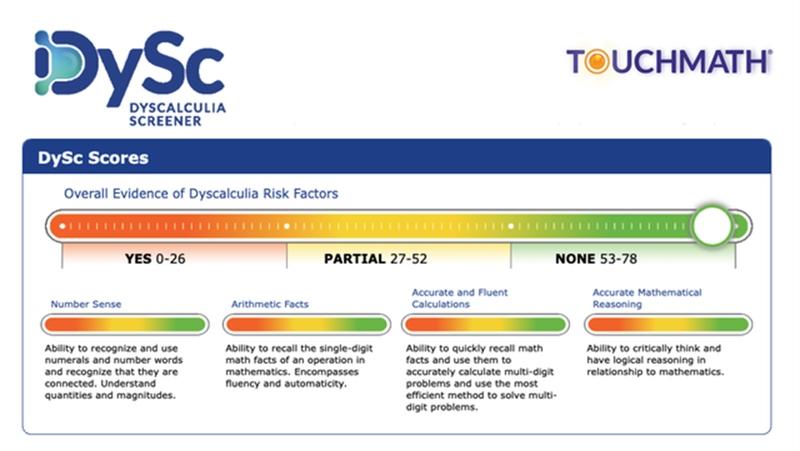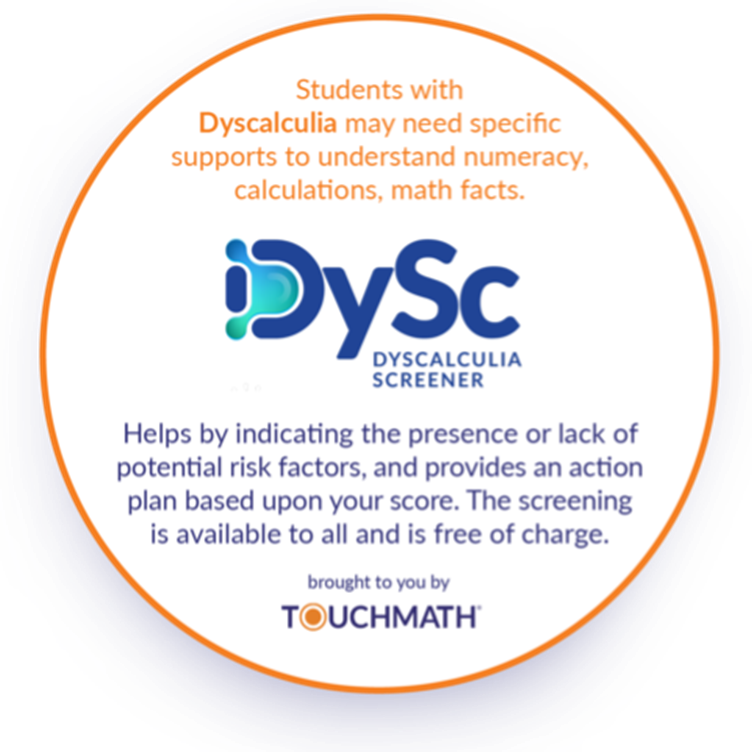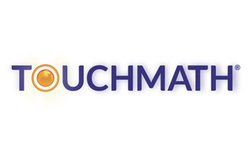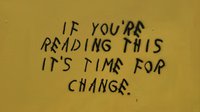DySc is a comprehensive dyscalculia screener aligned to American Psychiatric Association’s The Diagnostic and Statistical Manual of Mental Disorders, Fifth Edition, Text Revision (DSM-5-TR). TouchMath, a mission driven company dedicated to improving math outcomes, designed DySc to identify students who may be at risk for dyscalculia, a specific learning disability in mathematics. DySc addresses the need for an accessible and efficient dyscalculia screener that can be used as early as age three and throughout adulthood. Research says between 3–7 percent of students worldwide may have dyscalculia, the same percentage of students with dyslexia, but the awareness around dyscalculia is not as prevalent as that of dyslexia. By accurately assessing individuals struggling with numerical concepts and skills, the DySc enables timely intervention and support, minimizing academic struggles and reducing math anxiety in later years. The DySc assesses number sense, math facts, memorization, calculations, reasoning, and problem-solving, and generates a report with the results of the DySc screener, a copy of the DySc educator/caregiver survey, and a recommended action and intervention plan based on the learner’s results.
Formats/platforms used:
DySc is an online screening tool that can be accessed through various devices such as computers, tablets, and mobile devices. It can be administered by a parent, caregiver, teacher, or any advocate for an individual starting from the age of three. These results are combined with an advocate survey that takes into account outside observations of research-backed external indicators. Especially for young children, this survey makes our screening tool more accurate than many other tools, by eliminating potential false positives, and false negatives.

Primary website URL:
Problem solved:
TouchMaths’ dyscalculia screener is based on foundational math skills that are predictive of later math achievement, reflects the complexity of mathematics through a multi-proficiency assessment, and allows educators/caregivers to collect the maximum amount of information in the minimum amount of time. The screener report informs the instructional decision-making process, indicating performance in key areas associated with a dyscalculia diagnosis, and helps to provide the impetus for initiating the steps necessary to begin the diagnostic process. It is also easily accessible and useable by those that wish to learn more about why a student is struggling with math and how to best address the issue.
Grade/age range:
The DySc, a dyscalculia screener, is suitable for students from the age of three all the way through adulthood. It offers an assessment tool that effectively screens individuals to inform further evaluation and intervention across a wide age range.
Core/supplemental/special needs/extracurricular/professional development?
DySc responds to the crucial need for a user-friendly, universal screening tool that helps to identify risk factors and aid in the diagnosis and treatment of dyscalculia. With a detailed report providing immediate, actionable takeaways for educators and students, DySc not only provides information on whether or not an individual is at risk for having dyscalculia but also provides immediate guidance on how to remediate and address core deficits. Designed to screen starting as early as three years old, and through adulthood, it enables the facilitation of timely intervention and support. This early detection and support significantly mitigate potential academic challenges in the future. DySc assesses critical areas associated with dyscalculia such as number sense, memorization of math facts, calculations, reasoning, and problem-solving. Moreover, it generates a comprehensive report which includes the results of the DySc screener, a copy of the DySc educator/caregiver survey, and an action and intervention plan, informed by the individual learner's results. By doing so, it provides educators and guardians with a clear roadmap for future instruction and support.
What standards is your product mapped to?
DySc, the comprehensive dyscalculia screener and individualized intervention guide, is aligned to American Psychiatric Associations The Diagnostic and Statistical Manual of Mental Disorders, Fifth Edition, Text Revision (DSM-5-TR)
Time needed:
The DySc screener and accompanying survey can be completed for each student in less than 10 minutes, ensuring a quick and efficient process.
Pricing model:
As a subsidized solution, DySc is available free of charge. TouchMath made this decision intentionally to help drive universal, measurable change for individuals with dyscalculia and those who experience math difficulties.
Additional services needed:
No additional services are needed for the DySc dyscalculia screener. TouchMath has been working with students that have specific math learning disabilities for over 45 years and know the power that information has on changing the lives of students across the world. That is why TouchMath is fully subsidizing this tool so that all parents and educators have access at no cost, and can get the information to best support their students.
What makes DySc dyscalculia screener unique?
The DySc dyscalculia screener offers a comprehensive screening solution for dyscalculia and other math difficulties. What sets it apart is that it not only identifies these challenges but also provides evidence-based interventions. This means that caregivers and teachers have immediate access to valuable resources as they navigate the diagnosis process.

Characteristics:
The DySc screener is available for use with students and consists of a questionnaire for students, a survey for educators and/or caregivers, and a report that provides actionable suggestions for next steps with evidence-based interventions. DySc includes 16 to 39 age-appropriate questions in four categories aimed to identify dyscalculia traits without asking math questions that may be too advanced for a student's age. The screener can be used to assess three distinct age groups, ages 3–4 years, 5–7 years, and ages 8 and above, including adults. Following the questionnaire for students, a report is automatically generated with a raw score that summarizes the student’s performance, including the specific tasks or assessment items used and their scores. By analysing students’ scores, educators can determine whether a student might be at risk for dyscalculia. These scores help educators determine critical next steps, based on what the screen reveals about a student’s specific math difficulties.











